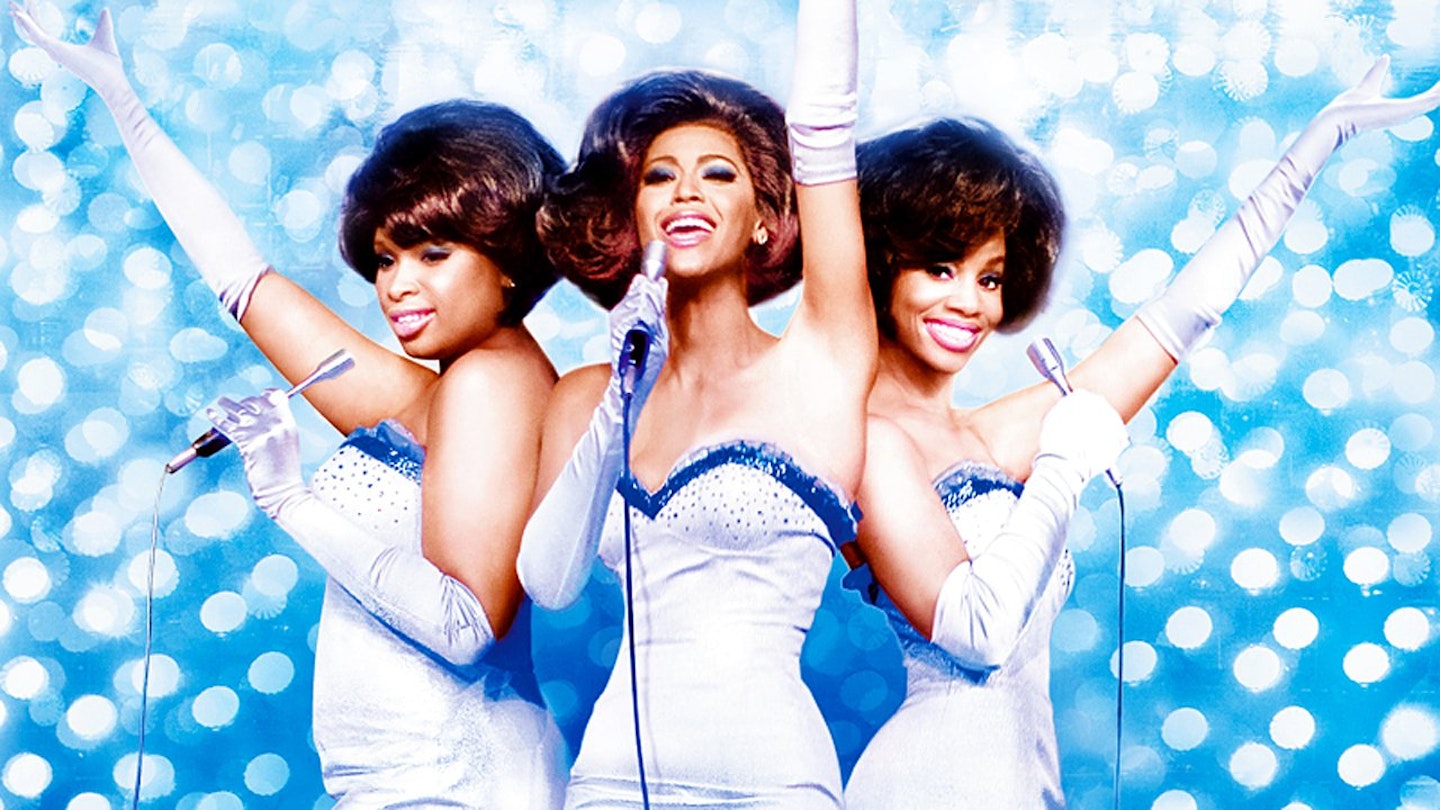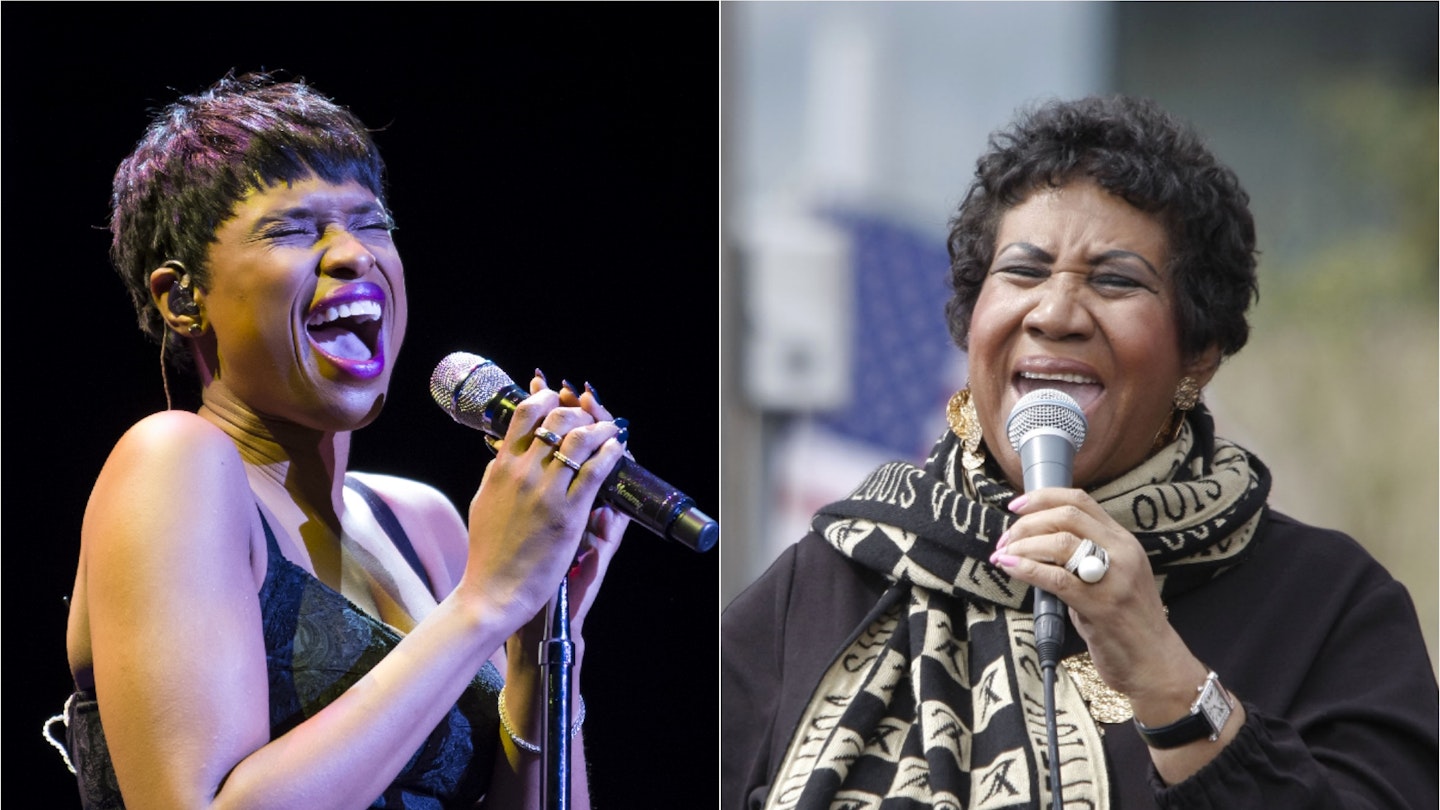Passion, betrayal, money, fame, lust, exploitation, excess and great tunes — phew! Any similarities to the rise of Motown and the history of The Supremes are coincidental (it says here) in the long-awaited screen adaptation of Michael Bennett’s groundbreaking ’80s Broadway phenomenon. This is not just a dazzling black musical, or a classic rags-to-riches showbiz fairy tale. It is a more sophisticated order, a Faustian morality play in which the characters sell their souls for success.
Foxx’s driven Curtis Taylor Jr., a car salesman turned talent manager, is a snake with a genius for manipulating people, taking on pop’s white power-brokers and crushing anyone who crosses him. But he also has a heroic side, unblinking in his quest to smash the colour barrier in commercial entertainment. The rise of Rainbow Records coincides with the civil rights movement, its internal hopes and turbulence paralleled by the marches, speeches and racial confrontations seen outside the recording studio. The trouble with Curtis is that he’s like every tyrant with a vision: he doesn’t care who is destroyed while he’s changing the world. The original Dreamettes — Beyoncé Knowles as pretty and malleable Deena; Anika Noni Rose as sweet, easily-led Lorrell; and Jennifer Hudson as Effie, the big, fierce, gospel-belting lead singer — and Effie’s talented songwriting brother C. C. (Keith Robinson) are foot-soldiers to his Napoleon.
The stage show made a star overnight of the original Effie, Jennifer Holliday. Twenty-five years on and the picture is snatched by Hudson, instant front-runner among the Oscar-tipped. Hudson, a one-time American Idol contestant whose ejection sparked controversy from outraged fans, is having the sweetest revenge with a sensational performance in the role of a lifetime. Supplanted as lead singer and Curtis’ lover by Deena, sacked, replaced and abandoned, she sings/howls the story’s showstopping watershed, And I Am Telling You I’m Not Going. It is an anguished, defiant anthem, and she puts it over like the love child of Aretha Franklin and a Force 10 gale. Like Holliday, Hudson will have difficulty finding another moment like this.
You also have to applaud long and hard for Eddie Murphy, revitalising his career with a blistering demonstration of his talents. He is electrifying as the soul man on the skids, raucous, raunchy Jimmy “Thunder” Early. Tirelessly hitting on all the girls, unpredictable on stage and off, Early embodies the raw animal magnetism and frustration of the great R&B singers who wouldn’t and couldn’t ‘pass’ as polished, middle-of-the-road crooners, of every artist who can’t be anything but himself.
Knowles is gorgeous but overshadowed by Hudson, which is really to the point. Her Deena is groomed for stardom precisely because her voice has no unique personality. Her gift is feminine allure and the ability to be what others want her to be, the archetypal dreamgirl. In a cannily presented turn, she belatedly takes a good look at herself, wonders who she really is, and takes control. Viva la diva!
Bill Condon, writer-director of Kinsey and Gods And Monsters (and also the screenwriter for Chicago), was a young white Motown obsessive in the audience at Dreamgirls’ historic 1981 Broadway premiere. His fascination with music, performance, context and relevance has yielded a long and carefully thought through, beautifully cinematic updating of the material in which choreography, costume, set dressing and style all feed the drama. The Dreamettes’ transformation into Deena Jones And The Dreams is a whirl of chart-toppers and world tours taking them through the ’60s and into the ’70s, out of their homemade dresses into ever more expensive sequinned gowns and ever bigger, better wigs.
A series of montages are achieved with breathtaking effect, such as the stunning cutting between Effie’s rich, earthy comeback attempt, One Night Only, to its calculatedly cruel hijacking by Deena and the girls’ hollow, glitzy, chart-topping disco version.
Result: one timeless, tuneful fable of glory, greed, heartbreak and, for some, the triumph of survival.








